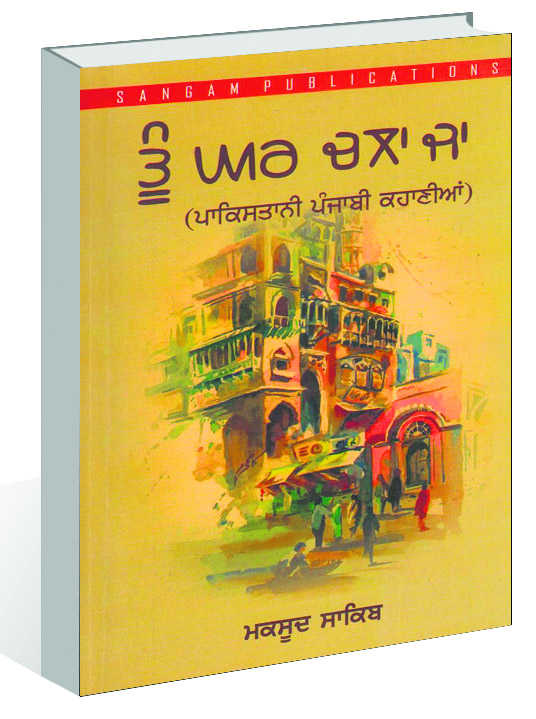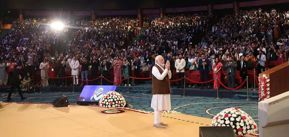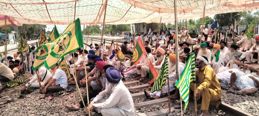
Tun Ghar Chala Ja by Maqsood Saqib. Transliterated from Shahmukhi by Harbans Singh Dhiman Suchet Kitab Ghar, Lahore & Sangam Publications, Samana. Pages 111. Rs 125
Jaspal Singh
Pakistani Punjabi writer Maqsood Saqib has been very active in the promotion of Punjabi language in West Punjab (Pakistan), where it has remained eclipsed by Urdu, an imported language. By now, three collections of his short stories have appeared, the last being Tun Ghar Chala Ja. He has published nine books in Punjabi on miscellaneous subjects. Apart from being a writer, he runs a publishing house, Suchet Kitab Ghar, in Lahore, which brought out Punjabi magazine Maan Boli (Mother Tongue) till 1997, replacing it with Pancham the following year. In 1990, he received the Bhai Vir Singh award for bringing out the best Punjabi magazine in both East and West Punjab.
Tun Ghar Chala Ja carries 20 sensitive stories. Muradan is a story about a woman’s inordinate affection for a male cow calf, whom she occasionally lets suckle her own milk. She found this calf during the turbulence of 1947, when the rioting marauders demolished a gaushala in the town. She brings it home giving it the name Bhola Nath and tends to it like a mother would look after her son. When it grows up, it has to be sent out. Local authorities are contacted to brand it as a roaming stud bull so that it could have the freedom to move anywhere. However, Bhola Nath never forgets its original home, visiting it to share some eatables from its ‘mother’.
Khulli Akh da Suffna (A Daylight Dream) is a psychological story about a patient haunted by the countenance of a barber. However, the barber makes a revealing comment that even sickness makes a man arrogant. The story Te Pakistan Ban Giya Si (And Pakistan Had Come into Existence) is about the gruesome murder of a Hindu living incognito in Pakistan even a year after the Partition. He travels in a bus followed by a bigoted hoodlum, who swoops on him like a hound on a hare, killing him instantly. Blinded by the hatred generated by the Partition holocaust, the bus passengers too approve of it. Another story, Rali, also deals with the pangs of the Partition suffered by a poor washerman’s family that had migrated from India. Rali, the washerwoman, wonders why people were divided along with the land…
Lafzaan di Taakat (The Power of Words) is about two dacoit friends, Sabru and Nizam, the former being a Hindu and the latter a Muslim. In pre-Partition days, they robbed government treasuries and rich moneylenders, distributing some of the booty among the poor a la Robin Hood. They were helped by the thanedar of that area, who was also anti-British. Ultimately, they are shot and the thanedar is imprisoned for life. Being repeatedly told in the mother tongue, the story is etched on the unconscious mind of the narrator that works through the mother tongue. Hun Barha Aaram Ea (Now At Peace with the Self) is about the caste system in Pakistan particularly observed by the Jatts. A landless Jatt working in railways in piqued for not being invited to the Jatt conference. When taunted by his non-Jatt co-workers, he discards his Jattism and now feels at peace with himself. Ik Rugg Angan Da (A Handful of Limbs) is a pathetic story of a young Muslim boy who joins Sikh National College at Lahore. Almost all his friends are Sikhs. But when riots break out in Pothohaar and thousands of Sikhs are displaced, they take refuge in Sikh educational institutions, including the Sikh National College. His friends are worried about his safety. They advise him not to attend the college so long as the Sikhs are there. But he retorts that if the Guru Granth Sahib can accommodate holy verses of Baba Farid, a Muslim, why can’t he help the suffering Sikhs?
In most of these stories, the Partition lurks in the background. Saqib is a politically conscious writer with a lot of love for the Punjabi language. He, along with others like Najam Hussain Syed, Fakhar Zaman and Dr Saeed Bhutta, is trying to promote Punjabi in Pakistan against all odds.



























